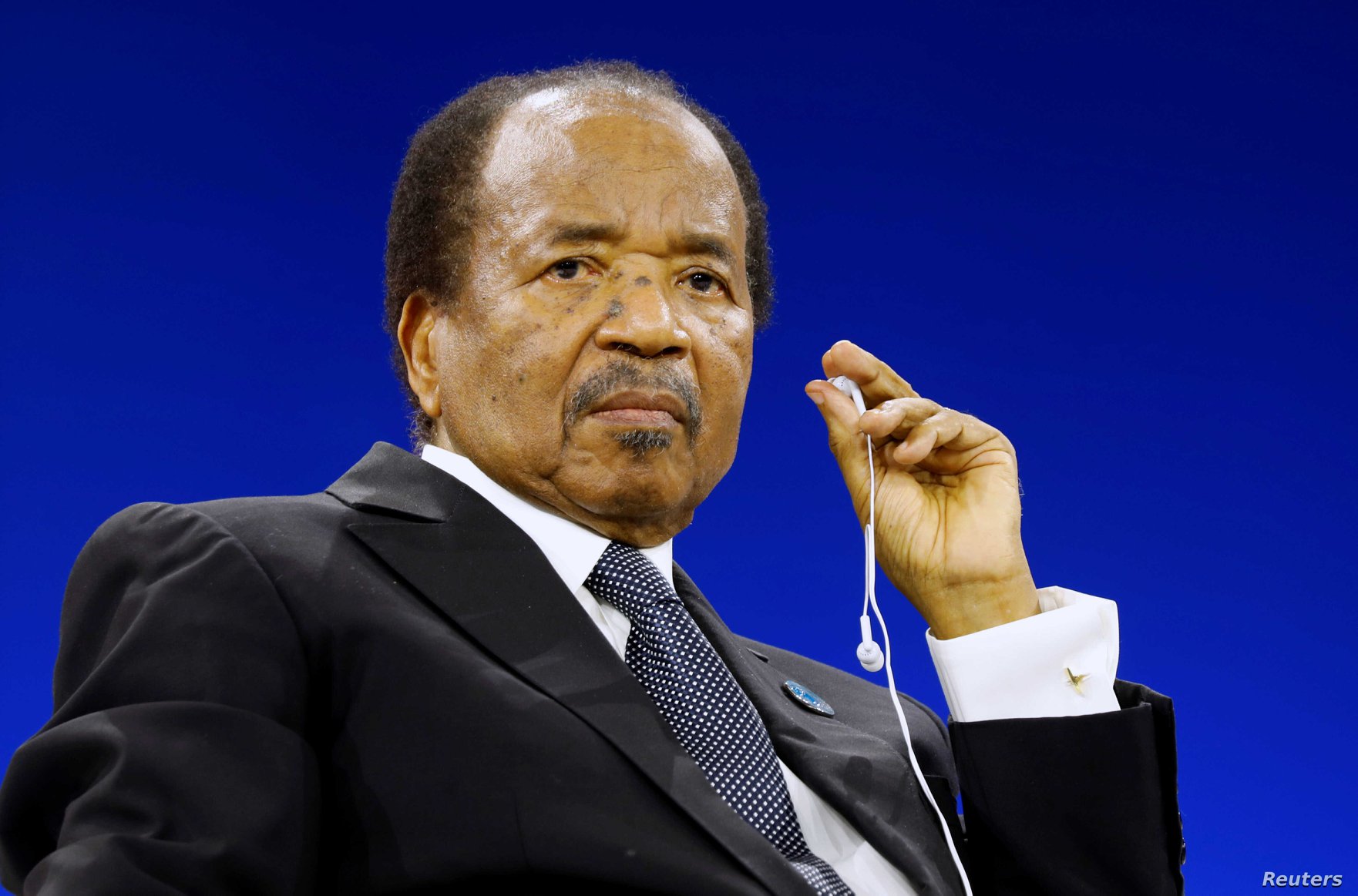Biya’s Legacy of Failure: A Nation on the Brink
By Andre Momo
As 2023 draws to a close, President Paul Biya’s leadership of Cameroon remains mired in failure, with the government’s inability to resolve the Anglophone crisis epitomizing his disastrous tenure. Seven years after the first protests erupted in the English-speaking regions of Northwest and Southwest Cameroon, the situation remains perilous—marked by continued military repression, widespread human rights violations, and escalating calls for independence. Rather than finding peace, Biya’s refusal to engage in meaningful dialogue has entrenched the conflict, pushing the country closer to full-blown civil war.
A Legacy of Broken Promises
Biya’s presidency has been defined by his refusal to listen to the legitimate grievances of the Anglophone population. Despite multiple opportunities to engage in peaceful negotiations, his government has instead responded with force. In 2019, the so-called “Major National Dialogue” was touted as a significant step toward peace. However, this initiative was widely criticized for its lack of inclusivity and its failure to address the core issues: political autonomy, cultural recognition, and economic inequality.
In the years following, Biya’s administration has repeatedly failed to take meaningful action. The promise of decentralization or federalism—once presented as a solution—remains unfulfilled. Instead, the regime has focused on maintaining control through military occupation and coercion, while simultaneously stifling any meaningful opposition. The subsequent years have witnessed thousands of lives lost, millions displaced, and a generation of young Cameroonians condemned to a life without proper education or opportunity.
An International Embarrassment
The situation in Southern Cameroons has not only highlighted Biya’s failures but also exposed the world’s indifference to his regime’s abuses. Despite mounting evidence of atrocities, including extrajudicial killings, torture, and the deliberate targeting of civilians by both government forces and separatist militias, the international community has failed to hold Biya accountable.
France, a historical ally, continues to provide diplomatic and military support to the regime, turning a blind eye to the human rights violations that have plagued the Anglophone regions for years. The United Nations and the African Union have issued numerous calls for peace, but their lack of concrete action has allowed the crisis to fester. There has been no international push for sanctions or an independent investigation into the crimes committed by all parties involved in the conflict.
This inaction is nothing short of complicity. The failure to hold Biya accountable for his role in perpetuating the conflict sends a dangerous message: that authoritarianism and human rights abuses can be tolerated as long as strategic interests are at stake.
The Toll on Civilian Life
For the people of Southern Cameroons, the consequences of Biya’s failure are devastating. Thousands of civilians have been killed, and over a million have been displaced by the violence. Villages have been burned to the ground, schools shut down, and entire communities left without basic services. While government forces continue to engage in brutal tactics—burning villages, killing unarmed civilians, and committing atrocities with impunity—the separatist groups are also guilty of violence, including kidnappings and attacks on civilians, further complicating the crisis.
The economic and social fallout from this conflict is catastrophic. Farmers cannot tend to their fields, children cannot attend school, and healthcare facilities are stretched beyond capacity. The future of the region remains uncertain, with many young people being radicalized and forced into militia groups due to the lack of opportunities and the climate of fear.
BaretaNews: A Call for Change
At BaretaNews, we believe that the only way forward for Cameroon is a radical shift in its political leadership. Biya’s long-standing grip on power has created a climate of impunity, fear, and division that continues to threaten the stability of the entire country. His leadership has failed the Cameroonian people—particularly those in the Anglophone regions—and there is no sign that this will change without external pressure.
We call for:
-
Immediate international action to address the humanitarian crisis and hold the Biya regime accountable for its role in the conflict.
-
An independent investigation into the atrocities committed by both government and separatist forces.
-
Genuine dialogue between the government and all Anglophone groups, including separatist factions, under international mediation.
-
Support for displaced persons and an urgent focus on rebuilding the educational and health systems in the affected regions.
-
A long-term political solution that addresses the root causes of the Anglophone crisis, whether through federalism, autonomy, or independence.
Biya’s refusal to engage with the real demands of the Anglophone people has pushed Cameroon to the brink. The time for change is now. The world must act before the situation becomes even more irreparable.





